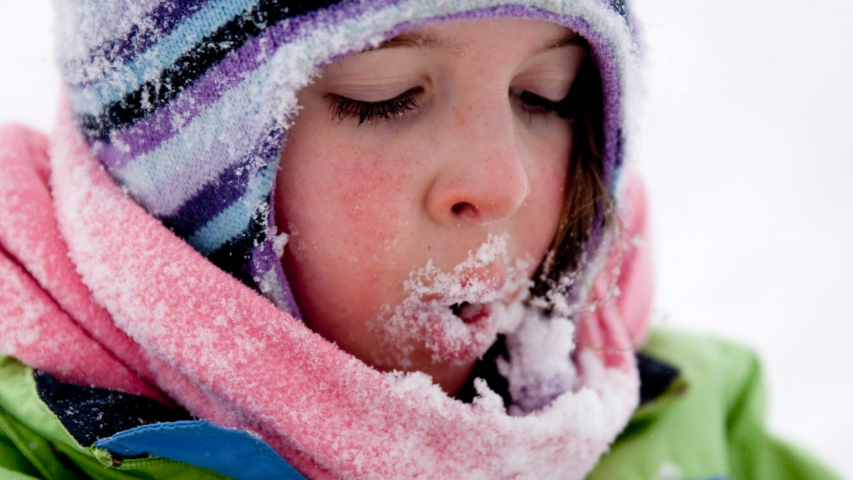
Brooke Spencer, a 9-year-old, expresses a playful reaction while tasting snow at her residence in Grand Blanc, Michigan, on Monday, January 6, 2014. This candid moment was captured by Michelle Tessier for The Grand Rapids Press.
In the age of viral food trends, "snow cream" has become the latest sensation, with influencers, celebrities like Reese Witherspoon, and cooking blogs enthusiastically sharing recipes. However, experts caution that this seemingly whimsical treat may not be as innocent as it appears.
Recipes circulating online suggest combining snow with ingredients like milk, sugar, and vanilla extract to create a chilly delight. Even celebrities like Reese Witherspoon have joined the trend, showcasing their unique twists, such as a "snow salt chococinno."
However, scientists, like Krystopher Chutko, an expert in hydrometeorology, urge caution. Chutko, who has firsthand experience eating snow in remote regions, emphasizes that snow is far from pure. It tends to accumulate dust, soot, and other particulate matter during its descent, resulting in an unpleasant taste. Moreover, snow can harbour potentially harmful particles and microorganisms, varying in content based on location.
A 2022 report from Western University highlights the porous nature of snowflakes, making them "superabsorbent" for pollutants such as vehicular exhaust, persistent organic pollutants (POPs), trace metals, and chlorides from road salts. POPs, known for their carcinogenic properties and long-lasting impact on the environment, pose serious health risks.
Despite online suggestions to wait for later snowfall to reduce pollution, Chutko remains skeptical, emphasizing that all snow is inherently impure due to the process of its formation. While the concentration of contaminants may not be high enough to cause acute illness from occasional consumption, experts caution against making "snow cream" a dietary habit.
Chutko recommends those determined to try this trend to select freshly fallen snow from rural areas, away from potential pollutant sources. Still, he advises against consuming snow that has fallen under trees or in urban areas, emphasizing that this unconventional treat should be an occasional indulgence rather than a regular dietary choice.
In conclusion, while "snow cream" may seem like a fun and novel idea, experts warn that its potential health risks outweigh the trend's appeal. As the late Frank Zappa wisely said, "Don't eat the yellow snow."















